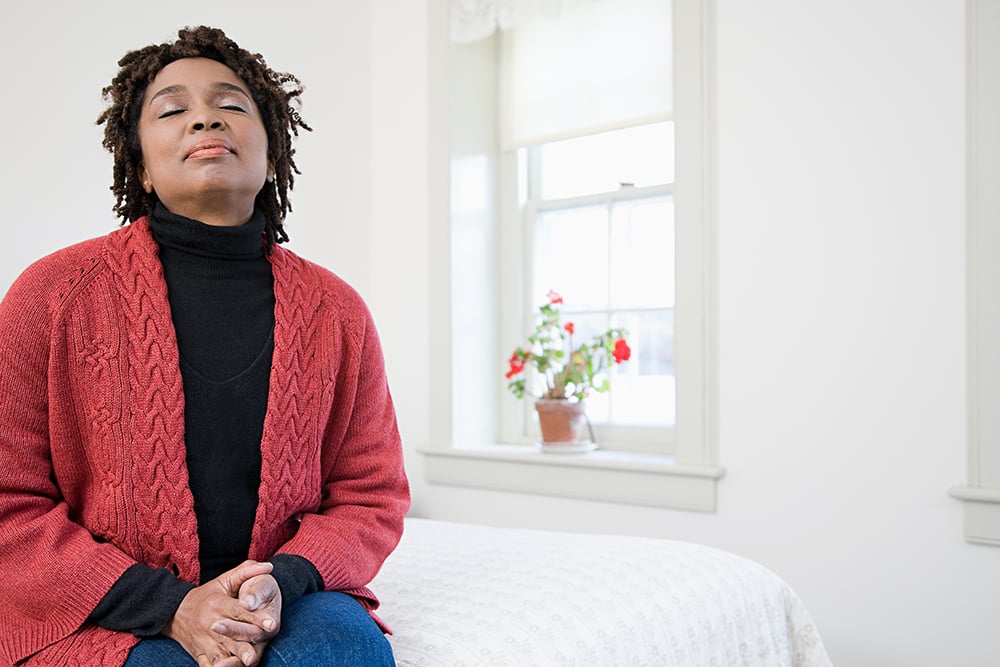By Noemi Vigano, Chartered Counselling Psychologist and Clinical Lead for product research and development at SilverCloud Health
In this 3-part blog series, we focus on the importance of protecting your mental health during the coronavirus pandemic:
Part 1: Understanding your emotions and how they are helping you
Part 2: Dealing with loss in the times of COVID-19
Part 3: Tips for coping with uncertainty

There are things that we can control, and at times like these it is most helpful to focus on what we can control. But what do we do with those feelings and worries that we cannot control?
In an ongoing emergency situation, it is hard to predict how things will develop and circumstances can change very quickly. Worrying about what might happen is understandable, but it is not very useful. In fact, it can make us feel more distressed.
Things you have no control over include the actions and reactions of other people, how long the situation will last, and what might happen to things like your job, in the future. This type of worry can drain a lot of your time and energy if you are not careful.
|
The key to managing worries about things you have no control over is to focus on coping strategies. This includes finding ways to manage the feelings that you are experiencing (e.g. stress, worry, anxiety) |
Use a grounding exercise
Focusing on what is going on for you right now can help you to reset and find calm in moments of distress. Grounding exercises involve reconnecting with your senses and what you are feeling in your body.

Try some of these grounding exercises to bring you back to the here and now:
- Take ten slow breaths, focusing your full attention on each breath. Notice how it fills up your lungs as you breathe in. Observe what it feels like as you breathe out.
- Splash some cold water on your face. Notice how this feels and how the towel feels as you dry your face. Try to describe these sensations.
- Listen and try to name the sounds around you. Start with the closest or the loudest sounds and then gradually move your awareness outwards and into the distance.
- Step outside or open a window. Notice the temperature of the air and how it is different or similar to the air inside. What new things can you smell?
- Put on a piece of music and take a piece of paper and a pen. Start drawing a line as the music plays, following the music with the pen.
The importance of self-compassion
Self-compassion and being kind to yourself are essential at this time. Ultimately acceptance is what will give us the space we need to learn how to cope with these changes – otherwise, we will mull over what has happened, which can cause us to feel distressed. Acceptance will help us to be proactive and to find new ways to adapt to our current situation.
We may face further changes and restrictions as the situation progresses. A simple way to cope with this uncertainty is to accept these changes and create new habits and routines from them - how I wash my hands, keep my distance, work from home, go shopping once a week only - to restore a sense of order in your life.
Journaling

Take time to celebrate the small daily gains and achievements in a journal. Journaling can be a useful and therapeutic coping method in times of distress. You can use your journal to sort through jumbled thoughts, to solve problems or to manage difficult feelings. Journaling can create a sense of ‘flow’ or focus that essentially gives your mind a rest from any troubles or concerns you may have. You don’t need anything other than a pen and piece of paper to start journaling your thoughts. Nothing is too small to celebrate: did you manage to move your body today, eat a healthy meal, or simply decide to take some time to rest? All of these are achievements during difficult times. There is no right or wrong way to write a journal entry, it can be as short or a long as you want.







